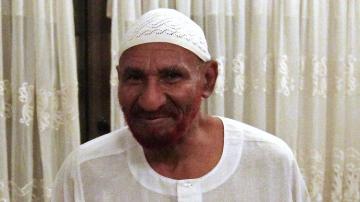Sudan’s NUP to set new conditions on participation in national dialogue
June 18, 2014 (KHARTOUM) – Sudan’s opposition National Umma Party (NUP) has suggested that it intends to set new conditions in order to resume participation in the national dialogue stressing that this process cannot start from the point where it stopped prior to the arrest of its leader al-Sadiq al-Mahdi.

Al-Mahdi was arrested on May 17 for criticising alleged crimes and atrocities committed by the Rapid Support Force (RSF) government militia in conflict zones.
He was released on Sunday and the state media said the move was done after al-Mahdi’s lawyers appealed to the justice minister Mohamed Bushara Dousa to use his powers under article (58) of Sudan’s penal code which allows him to stop criminal proceedings against any suspect at any point before being sentenced by a court.
It carried a statement by NUP Central Commission stating that they support the Sudan Armed Forces (SAF) and said that what al-Mahdi mentioned regarding RSF is derived from complaints and claims “that are not necessarily all true”.
However, several NUP leaders including Meriam al-Mahdi denied offering an apology, describing the statement attributed to the NUP Central Commission as “fake”. However the opposition party has yet to formally deny its authenticity.
The NUP said in a statement on Wednesday that its call for national dialogue was driven by strategic and circumstantial reasons relating to the dangers facing the country, adding that it joined the government’s initiative for dialogue with great enthusiasm and urged all political parties to join as well.
“Following this bitter experience [of arresting al-Mahdi] things cannot begin where it stopped and a genuine review for the reasons behind the failure of the government’s call for dialogue must be conducted in order to determine who is responsible for that failure”, the statement reads.
The NUP emphasised in the statement that it does not react impulsively but has a strategic view which is based on the national interest of the country, reiterating commitment to establishing a new regime without resorting to violence or seeking foreign support.
The NUP further mentioned that the new regime will be established through direct contact with all Sudanese parties inside the country and abroad in order to achieve national objectives including full democratic transition and comprehensive and just peace.
The statement thanked all those who supported al-Mahdi during his prison time, saying they are confident the Sudanese people and political parties would facilitate the NUP mission of reaching a unified national position to achieve the country’s national interests.
DIALOGUE MECHANISM TO MEET
Meanwhile, the leading figure in the ruling National Congress Party (NCP), Qutbi al-Mahdi, announced that the dialogue mechanism would meet soon in order to prepare for launching the political process with the participation of all components of society.
The dialogue mechanism, which is headed by president Omer Hassan Bashir, includes seven members from the government side and an equal number from the opposition. The mechanism work was suspended following arrest of al-Mahdi.
Al-Mahdi told the government sponsored Sudan Media Center (SMC) website that the dialogue will not be confined to political parties, saying it will include civil society organisations, women groups, students, workers and craftsmen, and national personalities.
He further said that issues raised by the opposition parties which refused to participate in the national dialogue must be discussed in the dialogue not prior to it.
Last January, Bashir called on political parties and armed groups to engage in a national dialogue to discuss four issues, including ending the civil war, allowing political freedoms, fighting against poverty and revitalising national identity.
He also held a political roundtable in Khartoum last month with the participation of 83 political parties.
The opposition alliance of the National Consensus Forces (NCF) boycotted the political roundtable, saying the government did not respond to its conditions.
The NCF wants the NCP-dominated government to declare a comprehensive one-month ceasefire in Darfur, South Kordofan and Blue Nile. In addition it has called for the issuing of a general amnesty, allowing public freedoms and the release of all political detainees.
(ST)
